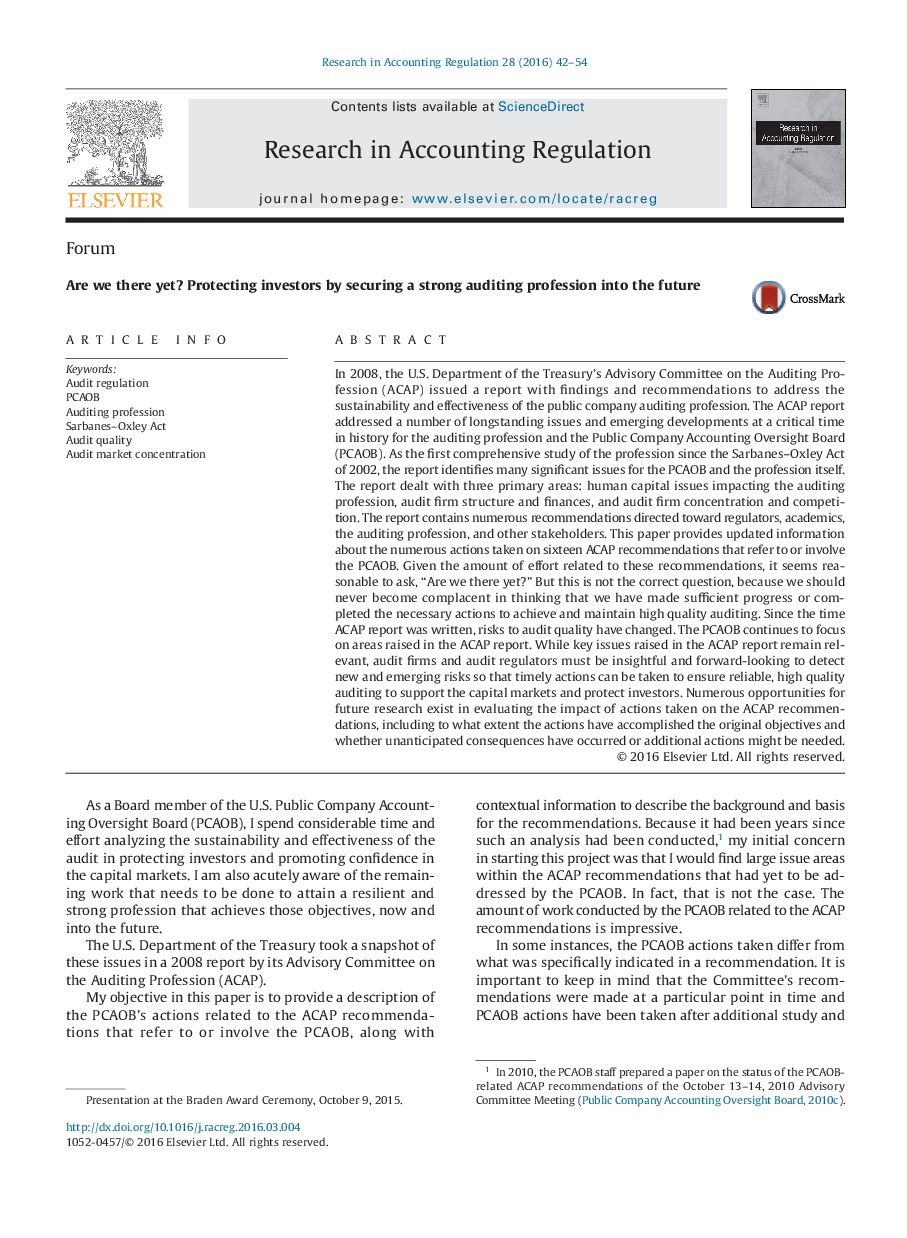| Article ID | Journal | Published Year | Pages | File Type |
|---|---|---|---|---|
| 1006559 | Research in Accounting Regulation | 2016 | 13 Pages |
In 2008, the U.S. Department of the Treasury's Advisory Committee on the Auditing Profession (ACAP) issued a report with findings and recommendations to address the sustainability and effectiveness of the public company auditing profession. The ACAP report addressed a number of longstanding issues and emerging developments at a critical time in history for the auditing profession and the Public Company Accounting Oversight Board (PCAOB). As the first comprehensive study of the profession since the Sarbanes–Oxley Act of 2002, the report identifies many significant issues for the PCAOB and the profession itself. The report dealt with three primary areas: human capital issues impacting the auditing profession, audit firm structure and finances, and audit firm concentration and competition. The report contains numerous recommendations directed toward regulators, academics, the auditing profession, and other stakeholders. This paper provides updated information about the numerous actions taken on sixteen ACAP recommendations that refer to or involve the PCAOB. Given the amount of effort related to these recommendations, it seems reasonable to ask, “Are we there yet?” But this is not the correct question, because we should never become complacent in thinking that we have made sufficient progress or completed the necessary actions to achieve and maintain high quality auditing. Since the time ACAP report was written, risks to audit quality have changed. The PCAOB continues to focus on areas raised in the ACAP report. While key issues raised in the ACAP report remain relevant, audit firms and audit regulators must be insightful and forward-looking to detect new and emerging risks so that timely actions can be taken to ensure reliable, high quality auditing to support the capital markets and protect investors. Numerous opportunities for future research exist in evaluating the impact of actions taken on the ACAP recommendations, including to what extent the actions have accomplished the original objectives and whether unanticipated consequences have occurred or additional actions might be needed.
